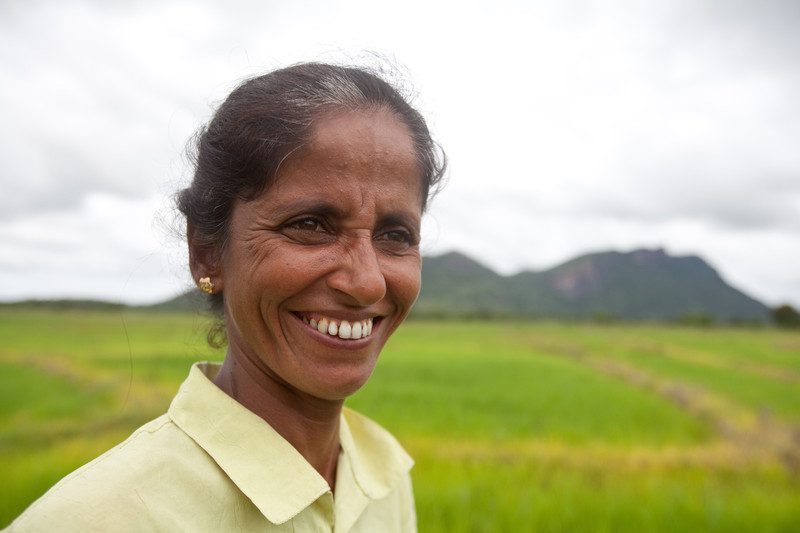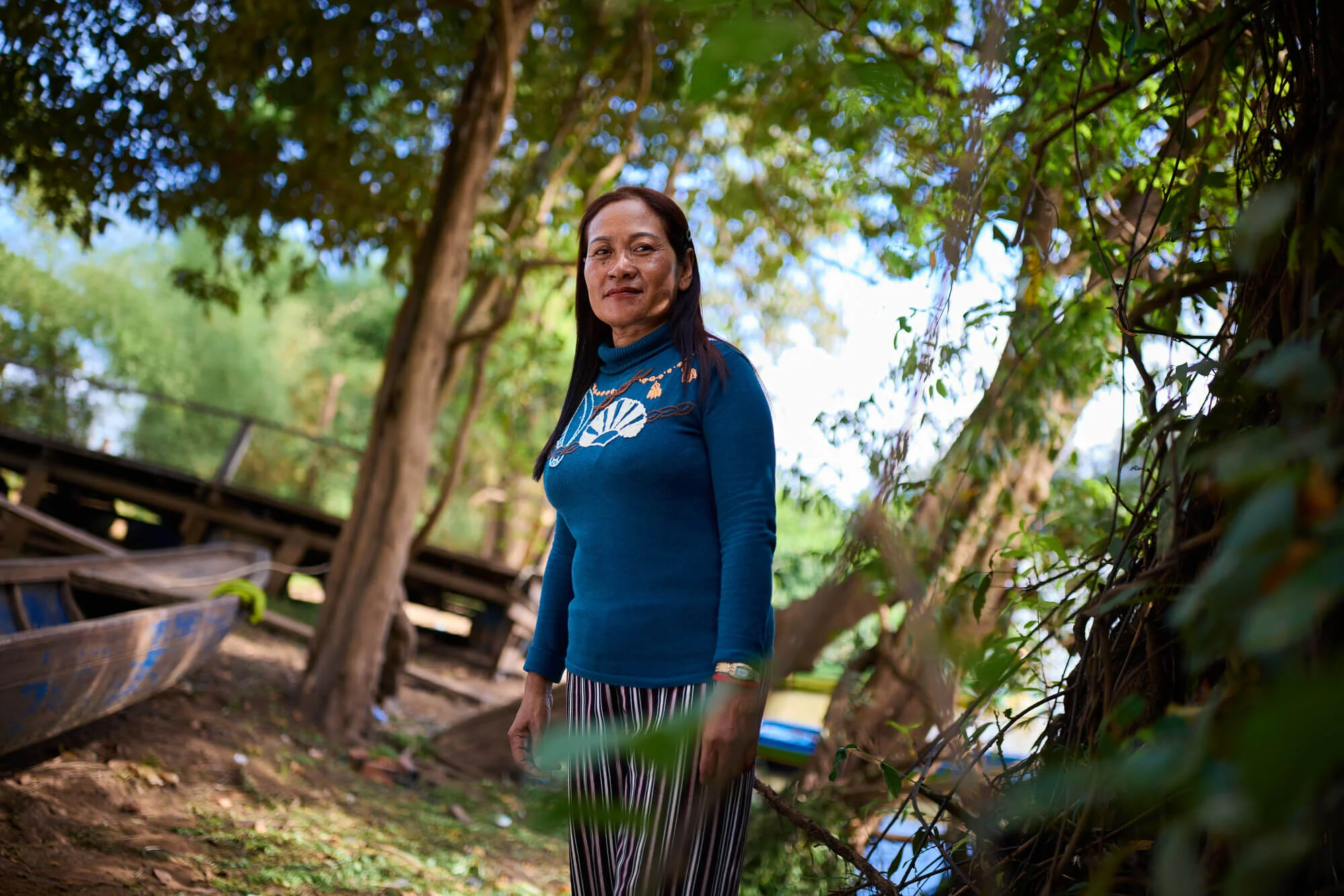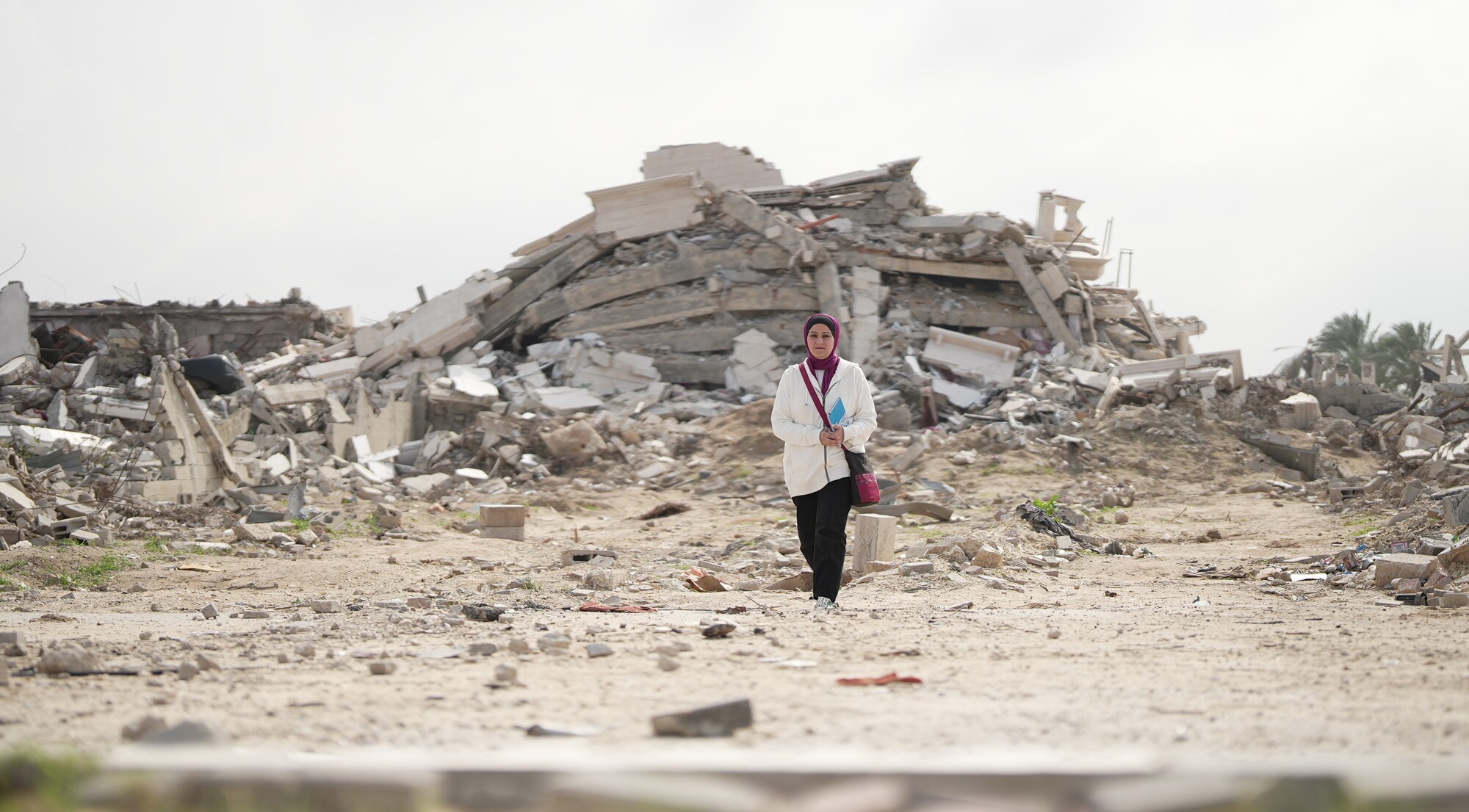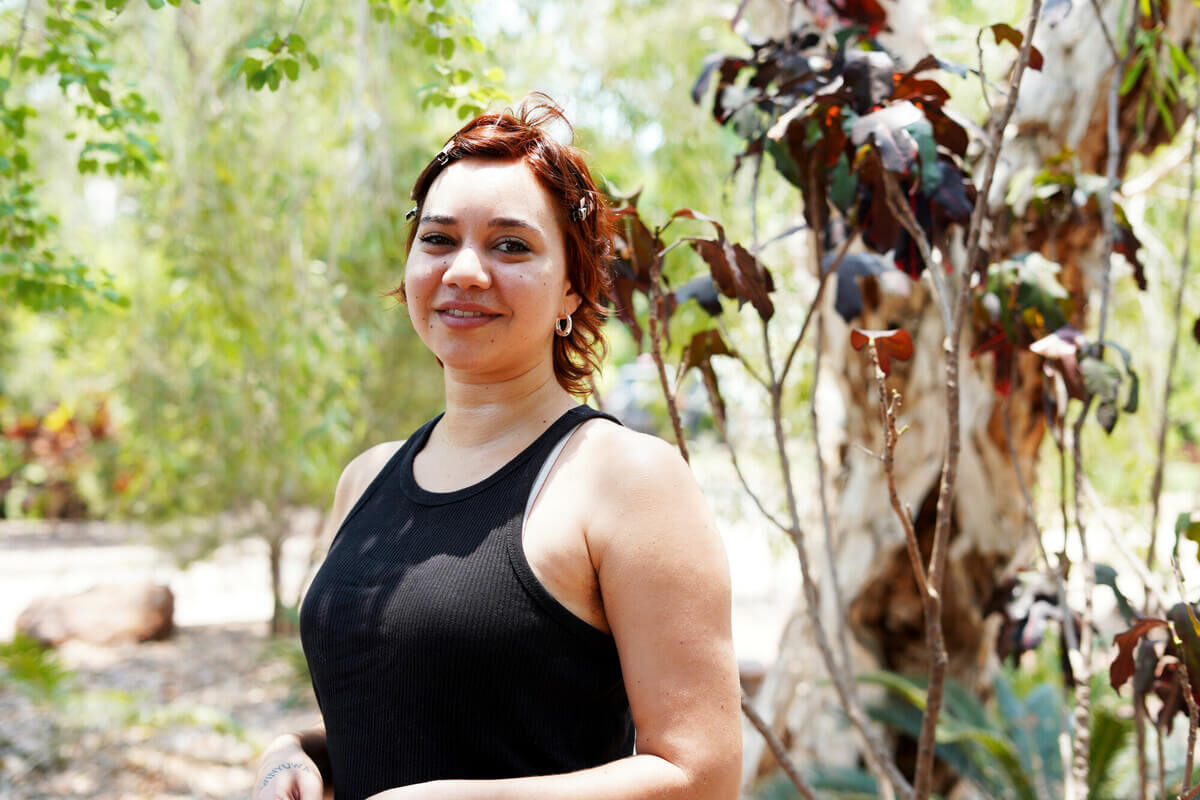This week, we introduce you to Alagaiah Sundaradevi, a single mother from the village of Dimbulagala. Unlike Chandrani and Indrani, Sundaradevi isn’t a home gardener (yet). Instead, she’s stopping hunger through SRI rice farming — an organic method of rice-growing that produces higher yields than the traditional method and is more resistant to flood and drought — which she learned with the support of local Oxfam partner, JSSK (Jatheen Athara Sahayogitha Sanwadana Kamituwa). Like Indrani, Sundaradevi was able to save enough money from her new enterprise to buy chickens, and now supplements her income by selling the eggs.
In the first part of her interview, Sundaradevi reveals the challenges she faced before becoming a successful rice farmer.
Interview by Marion Reid
Can you please tell us a bit about yourself?
I have four children. Two of them are married; the other two go to school. I am 35 years old. I am married; my husband was a labourer. Now he has left me.
Do you own the land where you grow food?
My father-in-law gave me a bushel (1/2 acre) of land when I got married. I use it for agricultural SRI farming. I am growing two seasons on that land.
Before you used this land for SRI farming, what was it used for?
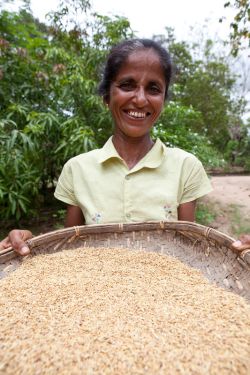
It was always a cultivated paddy.
Did you ever have to mortgage your land and work for other people as a day labourer?
That happened. Once I’d mortgaged my land I went and worked on other people’s land for daily wage.
Why did you mortgage your land?
I wanted to build up the korvill (temple). I wanted to assist, so that is why my father-in-law mortgaged the land.
So you didn’t choose to mortgage this land?
It was my father-in-law who mortgaged the land. [But] my father-in-law passed away two years ago and now I am the one who is making decisions.
How long was the land mortgaged for?
It was mortgaged for around five years. And it was through JSSK that I was able to get the land back. They gave me the money to pay the mortgage.
All five bushels of the paddy land were mortgaged. Then through JSSK, we saved all five. Then my husband went and mortgaged his four again. My husband is no longer involved with JSSK. But my bushel is intact.
When the land was mortgaged, how did you earn an income?
I went to work for a daily wage. I didn’t mind what I did … so I used to go fishing and work on other people’s land to help with the harvest. I used to cut bricks. I worked in the stone quarry. I would do anything for the money.
I would earn 600 rupees (AUD $11) in a day. If they gave me food it was 500 (AUD $9). I had two kids who are going to school so I had to give them a meal in the morning. I also have an old mother at home who I look after. There were some days I didn’t have anything because sometimes I could not find work.
Did you experience food shortages?
Yes. If there was nothing in the house my brothers would give me something. Or my married children would try and help me. They would give me money if they could. Otherwise they would give me cooked rice and curry.
Why did your husband mortgage the four bushels?
He got married to another lady, so therefore he mortgaged it.
Once you got your land back, how did your life change?
Through JSSK I started SRI farming. (NB: Soon after Sundaradevi got her land back and started farming, she lost her house and crops in the terrible floods of January 2011.) And I got flood assistance and … they helped me put up a temporary house. I received assistance in January, just after the floods.
What kind of assistance did you receive immediately after the floods?
I received dry rations, rice, dhal, dry fish. I was given milk powder, and non-food relief items like mats, toothbrush and bed sheets. During the floods we were displaced to the local school. They came and gave us bread for breakfast when we were living [there].
Because of JSSK and Oxfam we got what we needed during the floods. And … we got housing.
Next week: Sundaradevi talks SRI, poultry and community
Find out more
Want to give other women like Sundaradevi a hand up out of poverty? Please donate!
